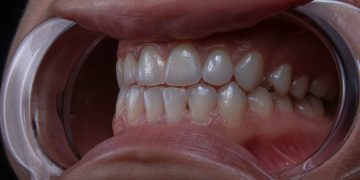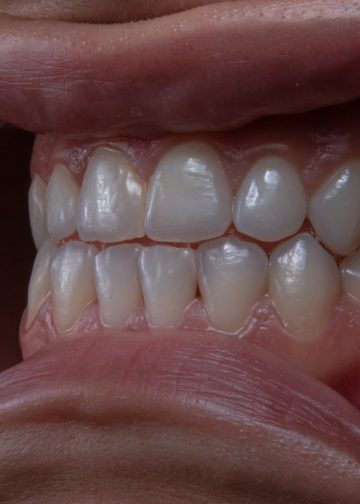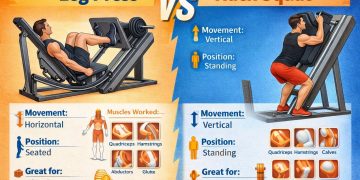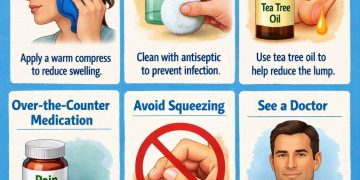Consider a caveman who has just returned from a hunt. He's hauling a huge wild boar carcass behind him. As he approaches the luminous cave where his comrades await him, he keeps an eye out for any new threats.
It would be impossible to defend him today. Even though he hasn't seen anything dangerous in an hour, his eyes continually dart. He checks his back frequently. He was hissing in the neighbouring jungle. He hurls his spear into the din.
The basic form of anxiety is an emotion that keeps us alive and uninjured. Our ancestors needed to avoid being eaten by wild animals. They grew better prepared to fight or leave if required by anticipating threats. As a consequence of this, they were able to survive and prosper.
Even if we don't face these threats daily, fear has benefits. We can be more responsible if we fear making mistakes or getting bad results. When people are nervous about meeting a deadline, they work faster. As the job is finished, the worry fades.
Mild, sporadic anxiety isn't something to be concerned about or address. It's just a regular component of the brain's operation.
As per Pain Management Clinic – anxiety, on the other hand, becomes ineffective once it reaches a certain level of intensity and frequency. Instead of sparking understanding, it becomes a source of pain and distraction.
When you're constantly worried, it's tough to experience life fully. It's usually a symptom of an anxiety disorder.
What is Anxiety disorder?
Anxiety disorders are a type of mental disease. You might experience fear and dread in response to particular items and circumstances if you have an anxiety condition. Physical indicators of anxiousness include a speeding heart and perspiration.
It's natural to feel worried at times. You may feel anxious or tense if you have to deal with an issue at work, go to an interview, take a test, or make a major choice. Anxiety, on the other hand, can be good. Anxiety, for example, aids us in recognizing harmful circumstances and focusing our attention, allowing us to remain safe.
On the other hand, an anxiety disorder goes beyond the normal worry and fear you may experience from time to time. Anxiety disorders occur when:
- It's difficult to function while you're anxious.
- When your emotions are triggered, you frequently overreact.
- You have a limited amount of influence over how you react to situations.
Anxiety problems can make getting through the day challenging. Anxiety problems can be treated successfully with a variety of methods.
What are some of the various kinds of anxiety disorders?
Anxiety disorders come in a variety of forms, including:
- Generalized anxiety disorder (GAD)
- Social anxiety disorder (SAD)
- Obsessive-compulsive disorder (OCD)
- Post-traumatic stress disorder (PTSD)
- Specific phobias
- Panic disorder
According to the fifth edition, the Diagnostic and Statistical Manual of Mental Disorders (DSM-5) divides anxiety disorders into three groups.
- Trauma- and Stressor-Related Disorders
- Anxiety Disorders
- Obsessive-Compulsive and Related Disorders
This distinction demonstrates that, while the illnesses are connected and have some similarities, they are also separate.
Emotional disorder and anxiety
Technically Refer A Patient, there is no category termed emotional disorders in the fifth version of the Diagnostic and Statistical Manual (DSM-V).
The category is far too broad, encompassing a wide range of illnesses. Therefore, emotional disorders must be divided into smaller categories to provide an adequate definition.
Emotions, or more specifically, their dysregulation, or poor channelling, can become a disorder. There are, however, various sorts of emotional diseases. Mood disorders and anxiety disorders are the two most common types of emotional illnesses.
There are many other, more different diseases within these two types. Mood disorders are defined by inappropriate moods or feelings in a certain scenario. Still, anxiety disorders develop when a person is in a chronic state of anxiety over an extended period.
These two sorts of illnesses are also broad categories that encompass a variety of more specific disorders.
Symptoms of Anxiety Disorder
The most common symptom of anxiety disorders is excessive fear or worry. Breathing, sleeping, remaining stationary, and concentrating can be challenging when anxiety issues. Depending on the kind of anxiety illness you have, you will have different symptoms.
The following are common signs and symptoms:
- Panic, fear, and apprehension
- Panic, gloom, or dangerous feelings
- being unable to maintain calm and stillness
- Problems with sleep
- Breathing difficulty
- Sweaty, cold, numb, or tingling hands or feet
- hyperventilation
- Avoiding dreaded objects or places with zeal or obsessiveness
- Muscle tenseness
- Palpitations in the heart
- Nausea
- Mouth is parched
- Dizziness
- The inability to focus
- Unable to stop yourself from thinking about a problem over and over again (rumination)
Sweating, racing heart, shortness of breath, shaking, worry, or tension are all physical and psychological indications of fear and anxiety. They are cues that something is happening that could be a threat and that you need to deal with it.
This “fight or flight” response mobilizes the physical and mental resources required to deal with the threat. Although this system generally works effectively, it can occasionally overdrive and cause more harm than good.
If this happens to you, it could be a sign that you have an anxiety problem.
Causes and Risk Factors for Anxiety Disorder
Anxiety disorders are caused by various factors that researchers are still trying to figure out. A complex set of factors determines who gets one and who doesn't.
Anxiety Disorder Causes
Anxiety disorders can be caused by a variety of factors, including:
- Genetics: Anxiety disorders can be passed down through generations.
- Brain chemistry: Anxiety disorders may be connected to malfunctioning circuits in the brain that controls fear and emotions.
- Environmental history: This relates to tense situations you've witnessed or experienced. Childhood abuse and neglect, the death of a loved one, or being attacked or seeing violence are all common triggers for anxiety disorders.
- Withdrawal or usage of a drug: Certain medications can mask or reduce anxiety symptoms. Anxiety disorder frequently coexists with alcohol and substance abuse.
- Medical issues: Some heart, lung, and thyroid conditions can mimic or intensify the symptoms of anxiety disorders. When speaking with your doctor about anxiety, it's critical to have a thorough physical examination to rule out any medical issues.
Diagnosis of Anxiety Disorder
Your doctor will evaluate you and ask you questions about your medical history if you have symptoms. They may conduct tests to rule out the potential that your symptoms are caused by something else. Anxiety disorders can't be diagnosed using specialized laboratory tests.
If the doctor can't find a physical cause for your symptoms, he or she may send you to a psychiatrist, psychologist, or another mental health specialist. These experts will ask you questions and do tests to establish an anxiety disorder.
When diagnosing you, your doctors will examine how long you've had symptoms and how severe they are. If the anxiety makes it difficult to enjoy or perform daily duties at home, work, or school, you must notify your doctors or counsellors.
Conclusion
Living with an anxiety illness can be challenging. Constant stress and fear can leave you exhausted and terrified. If you've spoken to a doctor about your symptoms, you've already made the first step in overcoming your anxiety.
Anxiety problems can go misdiagnosed and untreated for a long time. Treatment, fortunately, can help. Your quality of life, relationships, and productivity can benefit from the correct treatment. It can also help with your general health.
Finding the correct treatment that works for you can take some time. If you have any anxiety disorders, you may require multiple types of treatment. Most persons with anxiety disorders benefit from a combination of medication and therapy.
With the right treatment and counselling, you can learn to regulate your symptoms and thrive.





















